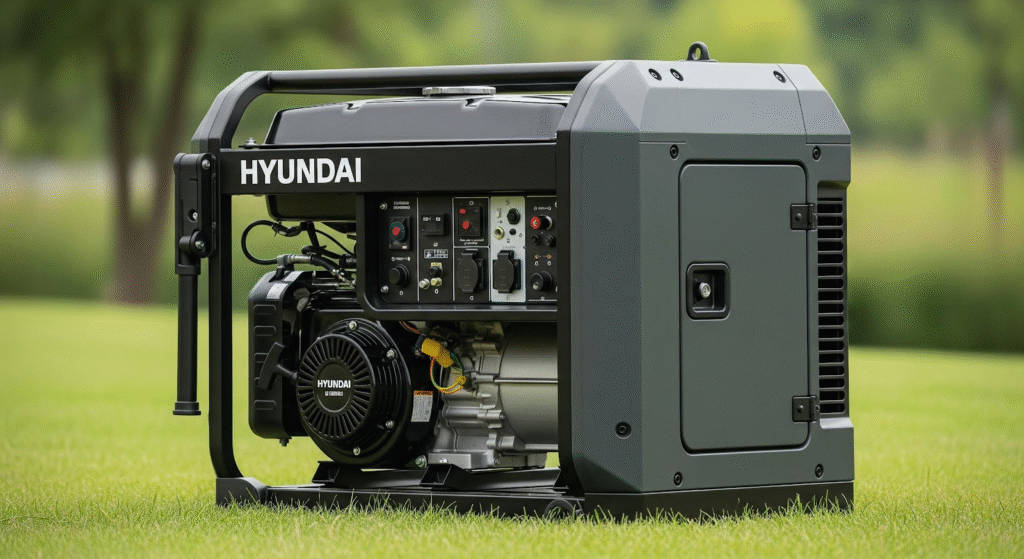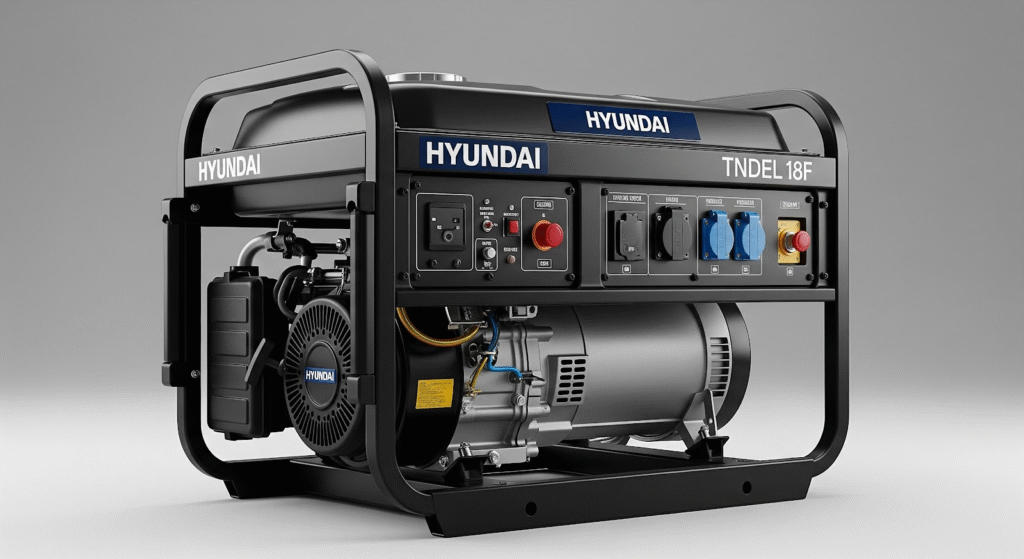In Pakistan, where power outages can be a regular and disruptive part of life, having a reliable source of backup power is less of a luxury and more of a necessity. For decades, the go-to solution has been the familiar, robust generator humming away in the background. However, as our homes and businesses have filled with sensitive modern electronics, a newer, more sophisticated technology has gained immense popularity: the inverter generator.
Many people use the terms “generator” and “inverter” interchangeably, but they are fundamentally different technologies, each with its own unique strengths and ideal use cases. Understanding this difference is the key to making a smart investment that not only keeps your lights on but also protects your valuable appliances. This guide will demystify the technology, breaking down exactly what separates a conventional electric generator from its modern inverter counterpart, so you can choose the perfect power solution for your needs.
1. How a Conventional Generator Works: The Basics
A conventional generator operates on a straightforward mechanical principle. It uses an internal combustion engine, typically powered by petrol or diesel, which runs at a constant, fixed speed (usually 3000 RPM). This engine is connected to an alternator. As the engine runs, it spins the alternator, which in turn generates AC (Alternating Current) electricity. The key thing to remember is that the power is generated directly from the engine’s speed; it’s a direct, one-to-one relationship.
2. How an Inverter Generator Works: A Smarter, Multi-Step Process
An inverter generator is a more advanced piece of technology that produces power in a three-step process:
- Generation: Like a conventional generator, it starts with an engine and an alternator to produce high-frequency AC power.
- Conversion to DC: This AC power is then passed through a rectifier, which converts it into clean, stable DC (Direct Current) power.
- Inversion to AC: Finally, an electronic inverter converts the DC power back into clean, stable, and high-quality AC power, which is then delivered to your appliances.
This multi-step conversion is the fundamental difference and the source of all of an inverter’s major advantages.

3. Power Quality: The Crucial Difference for Your Electronics
The most significant advantage of an inverter generator is the quality of the electricity it produces. It generates what is known as “clean power” or a “pure sine wave,” which is the same high-quality, stable electricity you get from your utility provider. This is essential for modern, sensitive electronics like laptops, smartphones, TVs, and gaming consoles, as they contain microprocessors that can be easily damaged by unstable power. Reputable brands like Hyundai Power Pakistan have focused heavily on this technology, ensuring their inverter generators provide a safe and stable power source for all of your valuable devices.
4. Fuel Efficiency: Which One Saves You More Money?
In a country where fuel prices are a major concern, efficiency is key. This is where inverter generators truly shine. A conventional generator must run at a constant high speed (3000 RPM) to produce power, regardless of whether you are powering a single light bulb or a large air conditioner. In contrast, an inverter generator has a “smart throttle” that allows it to adjust its engine speed based on the electrical load. If you are only powering a few small items, the engine will slow down, consuming significantly less fuel and saving you a considerable amount of money over time.
5. Noise Levels: A Quieter, More Peaceful Solution
Anyone who has lived next to a running generator knows how disruptive the noise can be. Because conventional generators are always running at a fixed high speed, they are consistently loud. Inverter generators, on the other hand, are remarkably quieter. Their ability to run at lower engine speeds under light loads, combined with their typically enclosed, sound-dampening designs, makes them a far more neighbour-friendly and peaceful solution for home use.
6. Size and Portability: Power Where You Need It
There is also a noticeable difference in their physical design. Inverter generators are engineered to be compact and lightweight. They often feature a suitcase-style design with a built-in handle, making them incredibly portable and perfect for recreational use, small shops, or moving around the house. Conventional generators are generally larger, heavier, and built on a rugged metal frame, often with wheels to help with mobility, designed for more stationary, heavy-duty applications.
7. The Price Factor: Initial Cost vs. Long-Term Investment
When it comes to the initial purchase price, a conventional generator is almost always the cheaper option for a given power output. This can make them an attractive choice for those on a tight budget. However, it’s important to consider the total cost of ownership. The significant fuel savings and the added benefit of protecting your expensive electronics from damage often make an inverter generator the more economical and smarter long-term investment.
8. Power Output and Capacity
While inverters are superior in many ways, conventional generators still hold an advantage in one key area: raw power output. For very high-demand situations, such as powering an entire large home with multiple air conditioners or running heavy-duty machinery on a construction site, large conventional generators are available in much higher wattage capacities than most portable inverters.
9. When is a Conventional Generator the Right Choice?
A conventional generator is the ideal choice when:
- You need to power heavy-duty tools or large appliances with powerful motors (like a submersible pump or a large deep freezer).
- Your primary need is maximum power output for the lowest initial cost.
- You are powering a worksite or a remote location where noise is not a major concern.
10. When is an Inverter Generator the Right Choice?
An inverter generator is the perfect choice when:
- You need to power sensitive electronics like computers, TVs, and smartphones.
- Fuel efficiency and low noise levels are your top priorities.
- You need a portable power source for a small business, camping, or outdoor events.
- Your primary need is for a high-quality backup power source for your home office or entertainment system.
The Final Verdict
In conclusion, the choice between an electric generator and an inverter is not about which one is “better” overall, but which one is better for your specific needs. The conventional generator is a powerful workhorse, offering maximum wattage for a lower upfront cost. The inverter generator, however, is the smarter, quieter, and more efficient modern solution, providing clean, safe power that is perfectly suited for our technology-driven lives. By understanding these key differences, you can make an informed decision and invest in the right power solution for your home or business in Pakistan.




